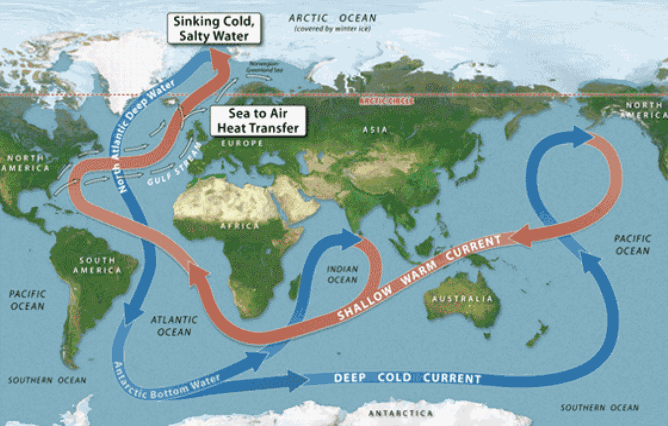The Gulf Stream is one of the most important heat transport systems on the planet. It efficiently brings heat from the equator to the Northern Hemisphere through ocean currents. But a recent study indicates that it has been slowing down, which is most interesting because it results in cooling of the region when most other parts of the world are warming up.
Michael Mann, one of the study researchers, comments, “Common climate models are underestimating the change we’re facing, either because the Atlantic overturning is too stable in the models or because they don’t properly account for Greenland ice sheet melt, or both. That is another example where observations suggest that climate model predictions are in some respects still overly conservative when it comes to the pace at which certain aspects of climate change are proceeding.”
The Distinguished Professor of Meteorology at Penn State, comments that the new study found evidence that this Atlantic overturning, or the Gulf Stream system is, indeed slowing down. And this, of course, means, less warm ocean water from the tropics and Southern Hemisphere is getting pumped north, alternately less cold water is getting pushed southward.
Study author Stefan Rahmstorf, of the Potsdam Institute for Climate Impact Research (PIK), comments, “If the slowdown of the Atlantic overturning continues, the impacts might be substantial. Disturbing the circulation will likely have a negative effect on the ocean ecosystem, and thereby fisheries and the associated livelihoods of many people in coastal areas. A slowdown also adds to the regional sea-level rise affecting cities like New York and Boston. Finally, temperature changes in that region can also influence weather systems on both sides of the Atlantic, in North America as well as Europe.”
Author: Deborah Grace
(Source: piercepioneer.com; March 25, 2015; http://tinyurl.com/pzkav4a)

